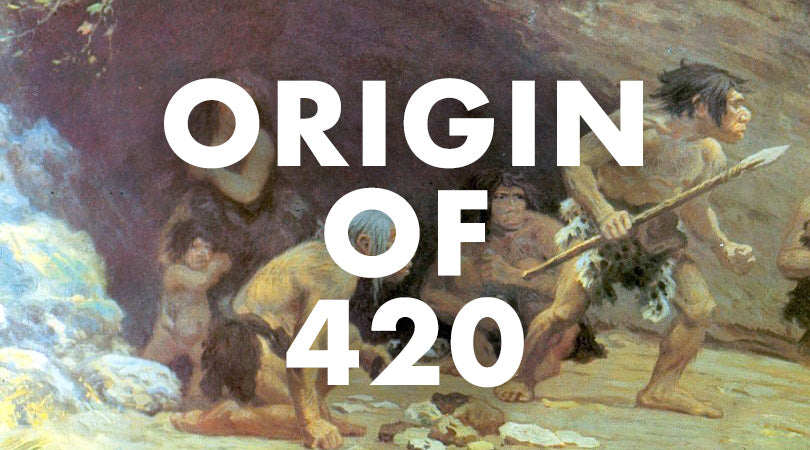
What are the origins of 420?
Ah, the number 420. The numerical equivalent of the cannabis plant's secret handshake. It's a number that's known worldwide for its association with weed and its subculture. But where did it come from? How did this seemingly random number become so deeply entrenched in stoner culture? Let's take a journey back in time and find out.
The Waldos
Legend has it that a group of high school students in San Rafael, California, in the early 1970s, called themselves the Waldos. They had heard a rumor that a nearby Coast Guard station had abandoned a plot of cannabis plants, and they decided to go on a treasure hunt for the hidden stash. They agreed to meet after school at 4:20 pm to begin their search.
As the Waldos went on their unsuccessful search for the Coast Guard's stash, they continued to use the code phrase "420" to refer to smoking pot. They would use it in conversations in the hallways at school, and soon it became part of their lexicon.
The Grateful Dead
Fast forward a few years, and a band called The Grateful Dead caught wind of the term from one of their roadies, who happened to be a friend of the Waldos. The band embraced the code word, and it became part of their culture. The Dead began using "420" as signal to their fans, letting them know when it was time to light up during their concerts.
From there, "420" started to spread throughout the cannabis community, becoming a widely recognized term for smoking marijuana. It appeared on t-shirts, posters, and in music lyrics, solidifying its place in stoner culture.
Police Code
But the origins of the term "420" go deeper than just a group of high schoolers on a hunt for weed. Some speculate that "420" comes from police code for marijuana use or that it was the number of chemical compounds in cannabis. However, there is no evidence to support these claims.
Regardless of its true origin, "420" has become a cultural phenomenon, celebrated annually on April 20th (4/20) as a day of cannabis appreciation. The day is marked with festivals, concerts, and protests advocating for marijuana legalization.
So next time you hear someone say "420," remember that its roots are in a group of high schoolers searching for a hidden stash of weed. And now, it's a symbol of a much larger movement towards the acceptance and legalization of cannabis.
Cannabis in America
Today, the cannabis landscape in America is rapidly changing. As of September 2021, 36 states and the District of Columbia have legalized medical marijuana, and 15 states and the District of Columbia have legalized recreational use for adults. This represents a significant shift in attitudes towards cannabis, which was once considered a taboo and dangerous substance.
The legalization of cannabis has had several positive impacts, such as generating tax revenue, creating jobs, and reducing the number of non-violent drug offenders in the criminal justice system. Additionally, it has helped to destigmatize the use of cannabis, which has been shown to have medicinal benefits for a range of conditions, including chronic pain, anxiety, and epilepsy.
However, the cannabis industry still faces several challenges, particularly at the federal level. Despite the growing acceptance of cannabis, it remains illegal under federal law, which creates a host of problems for businesses and consumers alike. For example, cannabis businesses are unable to access traditional banking services, which limits their ability to grow and expand. Additionally, people who use cannabis can still face legal consequences, such as losing their job or custody of their children.
The movement towards cannabis legalization is not without its critics, who argue that it sends the wrong message to young people and could lead to an increase in drug use. However, the evidence thus far suggests that legalization has not had a significant impact on rates of cannabis use among young people. In fact, in some states that have legalized cannabis, rates of teen use have actually decreased.
Overall, the cannabis landscape in America is evolving rapidly, with more and more states moving towards legalization. While there are still significant challenges to be overcome, the future looks bright for the cannabis industry and for those who benefit from its use.





